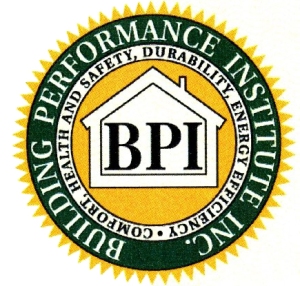 Ivy Tools is fortunate to have a close relationship with the emerging home performance industry. We’re often asked about the credentialing process and what it means for an individual or business to be BPI certified. Briefly, the Building Performance Institute, BPI, is an independent, not-for-profit organization which focuses on developing the home performance industry in exiting residential structures. BPI writes standards for whole-house inspection and renovation, accredits home performance contracting companies, and issues credentials to certified individuals. Most often those entering home performance seek the individual certification first.
Ivy Tools is fortunate to have a close relationship with the emerging home performance industry. We’re often asked about the credentialing process and what it means for an individual or business to be BPI certified. Briefly, the Building Performance Institute, BPI, is an independent, not-for-profit organization which focuses on developing the home performance industry in exiting residential structures. BPI writes standards for whole-house inspection and renovation, accredits home performance contracting companies, and issues credentials to certified individuals. Most often those entering home performance seek the individual certification first.
Current Certifications
BPI currently issues individual professional certification under the following designations:
- Building Analyst– focusing on measuring and analyzing the building as a system
- Envelope Professional– focusing on optimizing the installation and operation of the building envelope
- Manufactured Housing Professional– focusing on the efficiency of manufactured housing systems
- Heating Professional– focusing on heating system performance for comfort and efficiency
- AC and Heat Pump Professional– focusing on the role of the HVAC system in home performance
- Multifamily Building Analyst– focusing on measuring and analyzing residential multifamily structures
These certifications require that the candidate pass two exams. The first is a 2-hour, 100 question multiple choice exam. A passing score is 70%, and a copy of BPI standards are permitted for reference. The second exam is a 2-hour field examination. All reference material is allowed and a passing score is again 70%, though you must have a score of 85% or better on the combustion appliance zone (CAZ) section and the carbon monoxide (CO) section. None of the certifications require another as a prerequisite, though the AC and Heat Pump Professional requires proof of a CFR 608 designation.
An often overlooked point is that no formal training is required to sit for the BPI examinations. Yet training is strongly recommended by BPI, and will be necessary in most instances. The field exam in particular requires excellent preparation–it’s simply a tough process to fit into two hours.
New Certifications
BPI is also currently rolling out four new Home Energy Professional certifications. These will not take the place of the existing designations, but build on them to offer advanced credentials for experienced professionals. The Home Energy Professional certifications have prerequisite criteria, including proof of field work and other training or certifications. The designations include:
- Energy Auditor– focusing on the energy efficiency, health and safety of a home
- Retrofit Installer– focusing on the installation of energy efficiency upgrades in single-family homes, and small multi-family housing
- Crew Leader– focusing on supervising retrofitting activities for energy efficiency
- Quality Control Inspector– focusing on the completion, appropriateness, and quality of energy upgrade work
BPI professional certifications are changing at a remarkable pace, mirroring the changes in the home performance industry itself. Yet considering how many government and utility programs require BPI certification, it’s easy to see that BPI has succeeded in bringing clarity and value to individual professional certification.